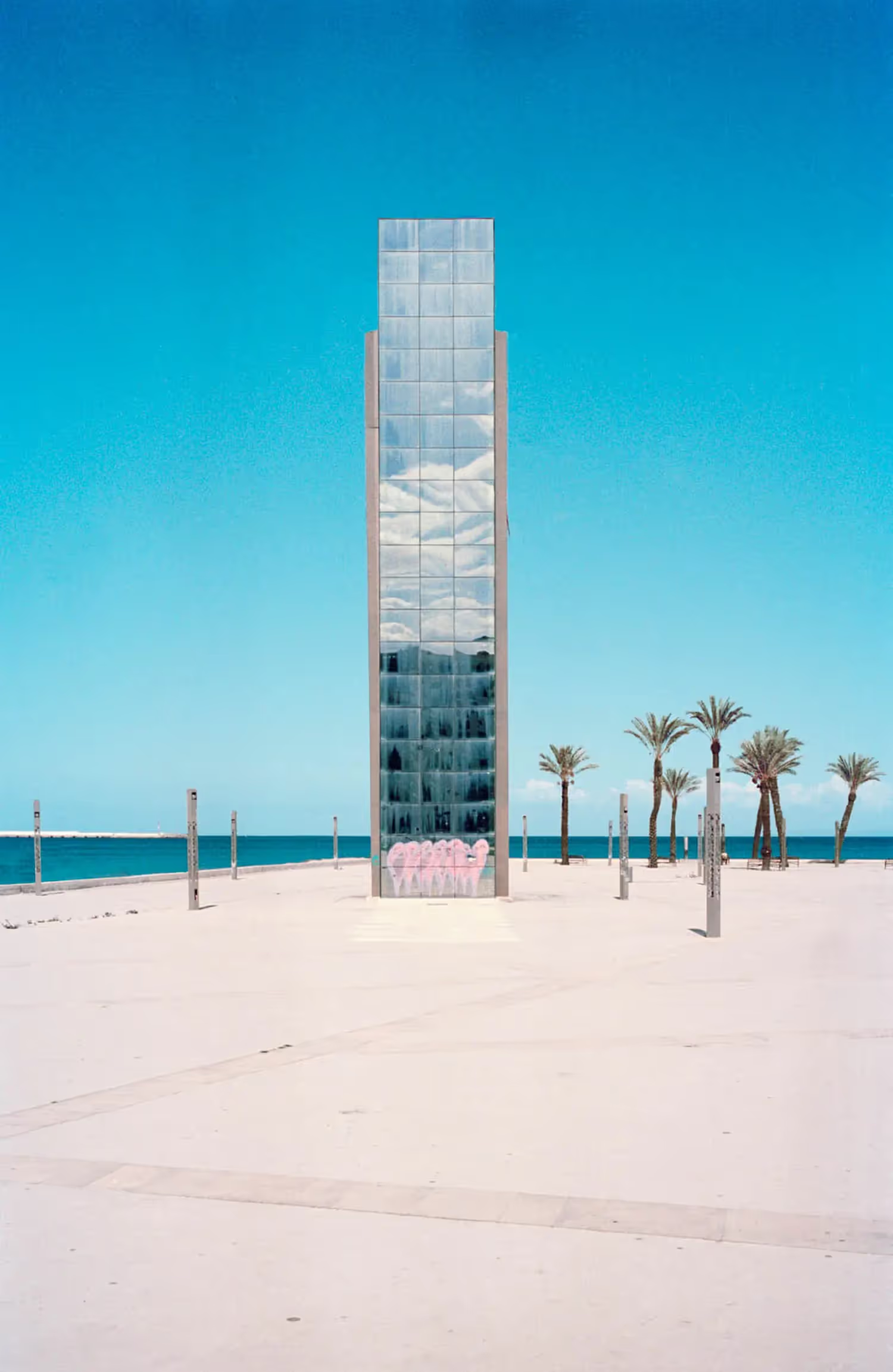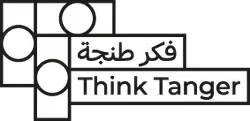



"Port cities, creative cities!" by THINK TANGER
The first panel talk opens on the city of Tangier! Conversation proposed by Think Tanger, an innovative cultural organization in dialogue with Port Cities, a project that extends thinking on port cities and maritime spaces beyond the Mediterranean.

All dates



"Port cities, creative cities!" by THINK TANGER
The first panel talk opens on the city of Tangier! Conversation proposed by Think Tanger, an innovative cultural organization in dialogue with Port Cities, a project that extends thinking on port cities and maritime spaces beyond the Mediterranean.



"Synthetic Agencies" by THINK TANGER
For its second Panel Talk, Think Tanger will continue to explore the fate of cities and their transformations accelerated by exogenous factors. This meeting launches their new series entitled "Synthetic Agencies".
For the first talk on the Agora, Hicham Bouzid, artistic director of the urban laboratory Think Tanger, will get us straight into the heart of the matter with his introduction on the myth of Tangier - the gap between fantasy and reality fueled by cultural and artistic production to reimagine a new mythology of Tangier in a broader temporal and geographical context.
The panel that follows will put the city into contemporary perspective. A global city, an open city, a gateway city. Tangier will engage in dialogue with Dakar and New Orleans through its organic connectors, key figures, to investigate the complexities of these territories and broaden our understanding of the city.
This project, initially led by the Global Humanities Research Center at Tulane University (New Orleans, USA), is based on two fundamental principles. First, port cities share certain characteristics, both positive and negative, such as high levels of complexity, multilingualism, environmental crisis, income disparity, and particularly rich cultural sectors. Second, these cities possess a unique potential to mobilize their creative economies for positive change, and the individuals we call "organic connectors" occupy a unique position as agents of transformation.
Hicham Bouzid
Hicham Bouzid is an art director, publisher, and curator based in Tangier, Morocco. With over 13 years of experience collaborating with national and international cultural, artistic, and foundational institutions, his work explores the complex interplay between Morocco's urban and social landscapes, influenced by the neoliberal policies of the past 25 years. In 2016, Hicham co-founded Think Tanger, an innovative cultural organization working at the intersection of contemporary art, design, participatory research, and urbanism. Under the Think Tanger umbrella, Hicham manages three venues: the Tanger Print Club (publishing workshop), an artist residency, and most recently, Kiosk—a brand-new space dedicated to art and innovation in his hometown. Alongside these initiatives, he launched Makan, an annual cultural magazine focused on socio-urban issues.
Brian T. Edwards
Brian T. Edwards is a professor and dean of the School of Liberal Arts at Tulane University in New Orleans, USA, where he oversees 35 departments and programs in the social sciences, humanities, fine arts, and performing arts. He is the author of *Morocco Bound: Disorienting America's Maghreb* (Duke, 2005); *After the American Century: The Ends of US Culture in the Middle East* (Columbia, 2016); and numerous essays, articles, and opinion pieces published in a wide range of scholarly, popular, and literary journals. He is co-editor, with Dilip Gaonkar, of *Globalizing American Studies* (Chicago, 2010), the result of a multi-year project based at Northwestern University, where he was a faculty member from 2000 to 2018 and held the Crown Professorship in Middle Eastern Studies. At Tulane, he led a two-year initiative on antiracism and disciplines, published as a podcast in 2023, and writes frequently about the future of liberal arts education. He is currently working on a multi-site initiative on global port cities, connecting scholars, urban planners, artists, and community activists in Tangier, New Orleans, Dakar, and Saigon.
Driss Ksikes
Driss Ksikes is a writer, playwright, and associate dean at HEM LCI-Education, responsible for research and academic innovation. A media and culture researcher and contributor to several international literary and critical journals, he initiates projects that place art, culture, and debate at the heart of the community. He is a founding member of the North African Decolonial Reflection Group, supported by ACSS (Arab Council of Social Sciences), and, since 2019, a member of the scientific committee of CODESRIA, the leading organization promoting social science research in Africa. His recent works, a blend of fiction and essays, include *Textures du chaos* (Le Fennec, 2022), *Les sentiers de l'indiscipline* (En toutes lettres, 2021), and *Au détroit d'Averroès* (Le Fennec, 2017 – Fayard, 2019). He received, along with his co-author Fadma Aït Mous for *The Intellectual's Profession: Dialogue with Fifteen Thinkers from Morocco* (Ed. En toutes lettres, 2014), the Award Grand Atlas of the best essay in 2015.
Fatima Bintou Rassoul Sy
Fatima Bintou Rassoul Sy (born in 1988 in Dakar) is a curator and cultural mediator. Her research focuses on Senegalese cultural policies since the 1960s and on the market dynamics that influence the contemporary art scene in Africa and its diaspora. She is the program director of RAW Material Company, a center for art, knowledge, and society founded in 2008 by curator Koyo Kouoh. With RAW, Fatima has co-curated several exhibitions, including *The City Is Ours: Carole Diop & Nzinga Mboup* (2023) and *Suñu Jant (Our Sun)*, a collaboration with Little Sun (2022). Bintou Rassoul Sy holds a degree in Exhibition Science and Technology from the University of Paris 1 Panthéon-Sorbonne. Before joining RAW, she worked in visitor services and cultural mediation at institutions such as the Louvre Museum, the Rodin Museum, the Grand Palais, and the Louis Vuitton Foundation. Returning to Dakar in 2018, she played a key role in the opening of the Museum of Black Civilizations.
Think Tangier
Think Tanger is a multidisciplinary, non-profit cultural agency, founded in 2016, that aims to promote culture, creativity, and social and urban innovation within the Tangier metropolitan area. By fostering a participatory approach that encourages various stakeholders—artists, researchers, entrepreneurs, and local communities—to actively collaborate, the organization seeks to propel a dynamic of collective intelligence to shape a more inclusive, creative, and humane urbanism.

© RobinPlusTanger
Practical information
Address
Port of Tangier - Opposite Bab El Marsa, Tangier, Morocco
Accessibility

Dates and times
Saturday, September 21st, 5:30 PM to 7:00 PM

Safety

ADDITIONAL INFORMATION
EXPERIENCES On board


Immersive exhibition Presents
Created with the exceptional collaboration of the Musée du Louvre, this exhibition highlights female figures in Mediterranean civilisation, thanks to the digitisation and modeling of part of the Louvre's collections. A two-stage experience: an introductory film to provide context, followed by an immersive experience in a 16-meter-long tunnel covered by 120 m2 of LED screens.
A sound journey through the Mediterranean
An immersive sound experience designed by Ircam, inviting the public to explore the richness and diversity of the Mediterranean through headphones equipped with spatialized sound.
.webp)
© Elisa Von Brockdorff
The artists

Frequently asked questions
Yes, the boat is freely accessible on site. However, you can pre-book your time online on our website.
For reasons of safety and preservation of the boat, high heels and stilettos may not be worn on the boat.
The museum boat is open to all free of charge. To find out on which quay it will be moored, or to pre-book your slot, consult the page dedicated to your town.
Appropriate facilities have been set up on the Festival site for the reception and access of people with reduced mobility. The boat is equipped with a 1m-wide ramp, accessible to people with reduced mobility, but may require the accompaniment of a third party due to its gradient of over 6%. Access to the aft deck and immersive exhibition is possible. However, the upper deck is not accessible. Please inform us in advance of any special accessibility requirements, so that we can make the necessary arrangements.

.webp)

